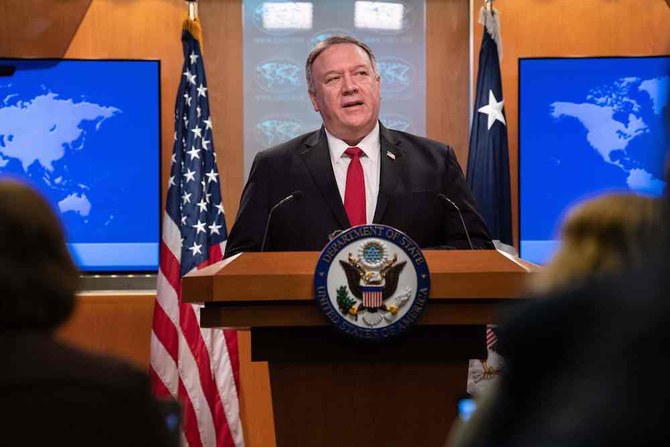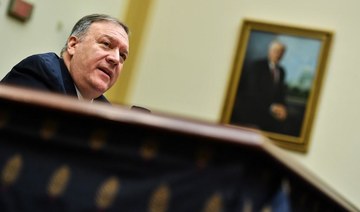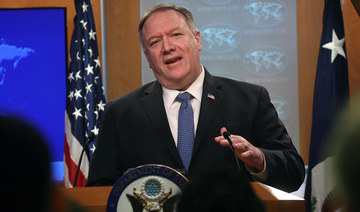WASINGTON: The United States on Tuesday placed the new leader of Daesh on its blacklist of terrorists, naming him as Amir Mohammed Abdul Rahman Al-Mawli.
Secretary of State Mike Pompeo said that Al-Mawli was named leader of the ultra-violent group after an October raid by US commandos killed its chief Abu Bakr Al-Baghdadi.
The organization had earlier named Abu Ibrahim Al-Hashimi Al-Quraishi as its new head, but US officials acknowledged they knew little about him — and later came to believe that the Daesh group was using his nom de guerre.
Al-Mawli “was previously active in Al-Qaeda in Iraq and is known for torturing innocent Yazidi religious minorities,” Pompeo said.
“We’ve destroyed the caliphate and we remain committed to Daesh’s enduring defeat no matter who they designate as their leader,” he said, referring to another acronym for Daesh.
A US-led coalition, spearheaded on the ground by Syrian Kurdish fighters, crushed Daesh’s so-called caliphate that once stretched for vast stretches of Iraq and Syria — but the group has inspired attacks much farther afield.
Al-Mawli was named a specially designated global terrorist, putting him on a list created after the September 11, 2001 attacks that makes any support to him a crime in the United States.
The State Department has already issued a $5 million bounty for information leading to Al-Mawli’s capture.
A scholar in Islamic sharia law, Al-Mawli rose through the ranks by issuing edicts to justify the persecution of the Yazidi, a campaign that the United Nations has described as genocide.
The militants killed thousands of Yazidis, who practice an ancient religion, and abducted and enslaved thousands more women and girls as they rampaged across the Middle East.
The Guardian, in a January article that cited intelligence sources, said that Al-Mawli was raised in an Iraqi Turkmen family — making him one of the few non-Arabs to rise through the ranks of the extremist group.
The newspaper said that intelligence officials were unsure of his whereabouts but believe he likely followed Baghdadi to Idlib, the last Syrian outpost out of the control of President Bashar Assad’s forces.
The Counter Extremist Project, which tracks militants, said that Al-Mawli served in the Iraqi military under Saddam Hussein before joining Al-Qaeda in Iraq, becoming a jurist for the militants.
It said that US forces captured Al-Mawli and jailed him in southern Iraq where he formed his bond with Baghdadi, who was also jailed as part of Al-Qaeda.
Pompeo also said the US believes Russia has killed dozens of Turkish military personnel in the course of their military operations in Syria, and that Washington continued to offer support to its NATO ally Turkey.
Speaking at a press conference at US State Department, Pompeo did not specify in where or during which incident the Turkish soldiers were killed. Last month, an air strike that Ankara said was carried out by the Syrian government forces killed at least 34 Turkish soldiers.
(With AFP and Reuters)



























